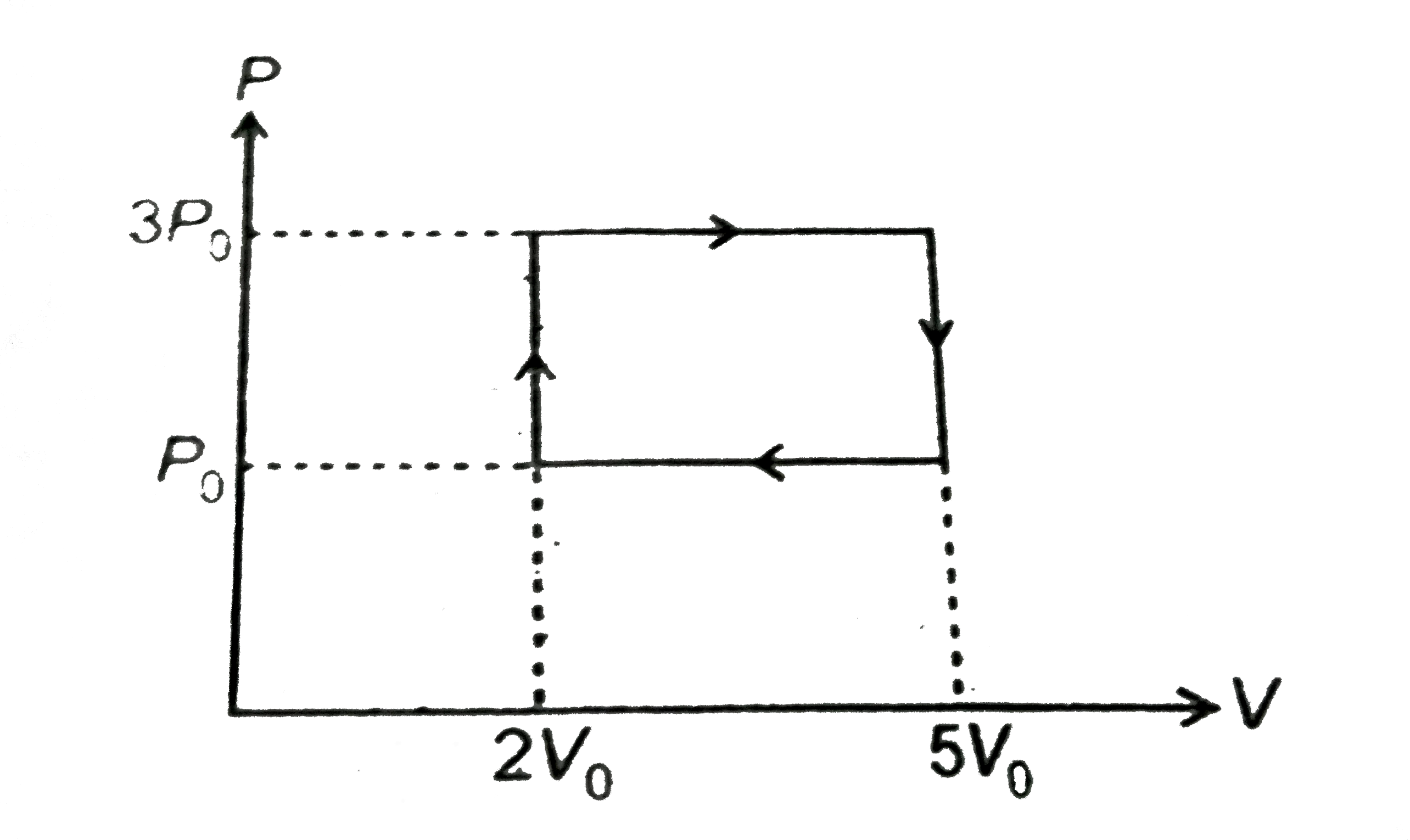Can we convert heat completely into mechanical work in a cyclic process.
Step-by-Step Solution
1. Understanding the Question: The question asks whether it is possible to convert heat completely into mechanical work in a cyclic process. A cyclic process is one where the system returns to its initial state after undergoing a series of changes.
2. Definition of Cyclic Process: In a cyclic process, the initial and final states of the system are the same. This means that any changes in internal energy during the process must sum to zero over one complete cycle.
3. Second Law of Thermodynamics: The second law of thermodynamics states that it is impossible to convert all the heat energy supplied to a system into work without any losses. This is often expressed through the Kelvin-Planck statement, which asserts that no heat engine can operate in a cyclic process and convert all the absorbed heat into work.
4. Kelvin-Planck Statement: According to the Kelvin-Planck statement, for a cyclic device (like a heat engine), it is impossible to convert heat completely into work without rejecting some heat to a cold reservoir. This means that some portion of the heat energy must be expelled to the surroundings.
5. Conclusion: Since the second law of thermodynamics prohibits the complete conversion of heat into work in a cyclic process, the answer to the question is no. It is not possible to convert heat completely into mechanical work in a cyclic process.
Final Answer
No, we cannot convert heat completely into mechanical work in a cyclic process due to the second law of thermodynamics.
No, we cannot convert heat completely into mechanical work in a cyclic process due to the second law of thermodynamics.
Topper's Solved these Questions
- THERMODYNAMICS LAWS & SPECIFIC HEATS OF GASES BOOK - PHYSICS GALAXY - ASHISH ARORACHAPTER - THERMODYNAMICS LAWS & SPECIFIC HEATS OF GASES EXERCISE - Conceptual MCQs Single Option Correct
21 Videos
- THERMODYNAMICS LAWS & SPECIFIC HEATS OF GASES BOOK - PHYSICS GALAXY - ASHISH ARORACHAPTER - THERMODYNAMICS LAWS & SPECIFIC HEATS OF GASES EXERCISE - Numerical MCQs Single Options Correct
42 Videos
- THERMODYNAMICS LAWS & SPECIFIC HEATS OF GASES BOOK - PHYSICS GALAXY - ASHISH ARORACHAPTER - THERMODYNAMICS LAWS & SPECIFIC HEATS OF GASES EXERCISE - Practice Exercise 3.4
11 Videos
- PHOTOELECTRIC EFFECT AND MATTER WAVESBOOK - PHYSICS GALAXY - ASHISH ARORACHAPTER - PHOTOELECTRIC EFFECT AND MATTER WAVESEXERCISE - Unsolved numerical problems
42 Videos
- WAVE OPTICSBOOK - PHYSICS GALAXY - ASHISH ARORACHAPTER - WAVE OPTICSEXERCISE - Unsolved Numerical Problems
28 Videos
Similar Questions
Knowledge Check
In an isobaric process, heat is supplied to a monoatomic ideal gas. The fraction of heat that goes itno mechanical work is
A1B23C35D25
Can the work done during a cyclic process be zero?
View SolutionHeat energy is converted to mechanical energy in
View SolutionCan whole of work be converted into heat?
View SolutionCan whole of heat be converted into work?
View SolutionWhat is a cyclic process ? Prove that the net work done during a cyclic process is numerically equal to the area of the loop representing the cycle.
View SolutionCan we define specific heat capacity at constant for an adiabatic process?
View SolutionA wind mills converts …………energy of wind into mechanical work.
View Solution

